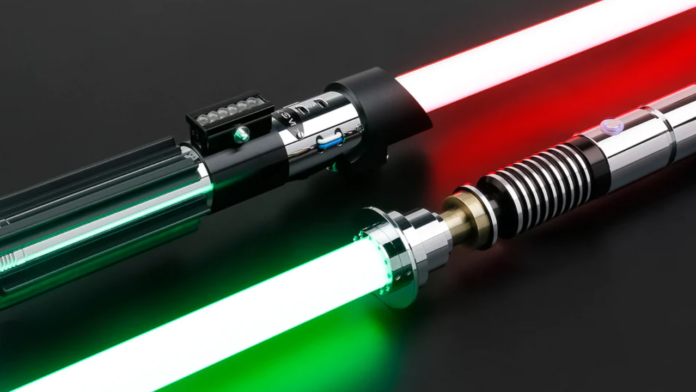The legendary laser swords known as lightsabers are one of Star Wars’ most enduring symbols. These tools are the preferred weapons of the Jedi and Seth since they are light, strong enough to cut through virtually anything, and can deflect blaster blasts iaber is a provider of cutting-edge semiconductor integration technology and products that can intergeneration ally combine semiconductor materials and advanced packaging
The many lightsaber varieties now appear. The various kinds of lightsabers reflect the unique styles and personalities of their users, giving the Star Wars universe more complexity and diversity. These lightsabers have captured the imaginations of fans all throughout the world as an enduring emblem of the conflict between the forces of light and dark. Click the link https://www.isabers.com to learn more about the types of lightsabers.
Different Types of Lightsabers
Lightsabers come in a variety of styles based on your demands during combat. To mention a few, there are single-bladed weapons, clattering cross guard sabers, and double-bladed lightsabers.
Double-Blade Lightsabers
A saber staff is another name for double-bladed lightsabers. You may pull apart the two normal lightsabers that are attached at the pommel. Having two weapons is a fantastic technique to surprise your adversary. This is a fantastic choice if you’re facing numerous foes. It takes more effort to master these. To personalize this choice and make it your own, think about ordering personalized lightsabers.
Light whip Lightsaber
Lightwhips are long and flexible. They are beneficial since they provide a wider range and more unexpected attacks than a lightsaber. They lack defense against blows and aren’t as powerful compared to traditional sabers, which is one drawback. The lightsaber whip may be the most adaptable of the several blade types in the hands of a master. The whip lightsaber has a great length. But these lightsabers are less strong than traditional ones.
Training Lightsaber
There is a lightsaber called a training lightsaber for beginners. They resemble a typical lightsaber. Only the low-power setting is available. Regular lightsabers have a setting that can be changed. It is how you learn to wield a lightsaber, and it is what is applied in instruction. They can’t cause as much damage because of their limited power. If you grip this blade, all you might get are burns and bruises.
Light foil Light saber
The most common type of light saber is the light foil. A stylish and more compact choice is Light foils. They are located in the Trapani sectors. They lack the power of standard light sabers. Their crystals’ focus is poorer. They’re a wonderful choice for people who aren’t force-sensitive.
Shoto Lightsaber
These lightsabers feature a shorter blade and hilt than usual. Some of them have a metal guard to deflect blows. It is simpler to carry this blade because it is lighter than those of other sabers. Remember that the hilt of this lightsaber is smaller than most, which may have certain drawbacks. To find out when Luke uses it, look at the Legends timeline.
Double-Bladed Spinning Lightsaber
The inquisitor lightsaber is another name for the double-bladed spinning lightsaber. This lightsaber is well-liked by many people because it can fly, has spinning blades, and has a sharp disc. The ring is a scam. Strong opponents have the ability to cut through your ring if you face them.
Single-Blade Lightsaber
Out of all the types of lightsaber blades, the single-blade lightsaber is the best one. It is a more unique and classic form of lightsaber. This lightsaber has so much ability that you can easily beat your opponent by using it. Due to its functionality, the demand for this blade is very high.
Conclusion
Finally, lightsabers are recognizable and functional Star Wars weapons. They appear in a variety of forms, each with unique features and traits. You should be well on your way to selecting the ideal lightsaber for you now that you’ve looked into the many kinds. Different kinds of light blades have distinctive personalities, and these are emblems of strength, development, and grace.











